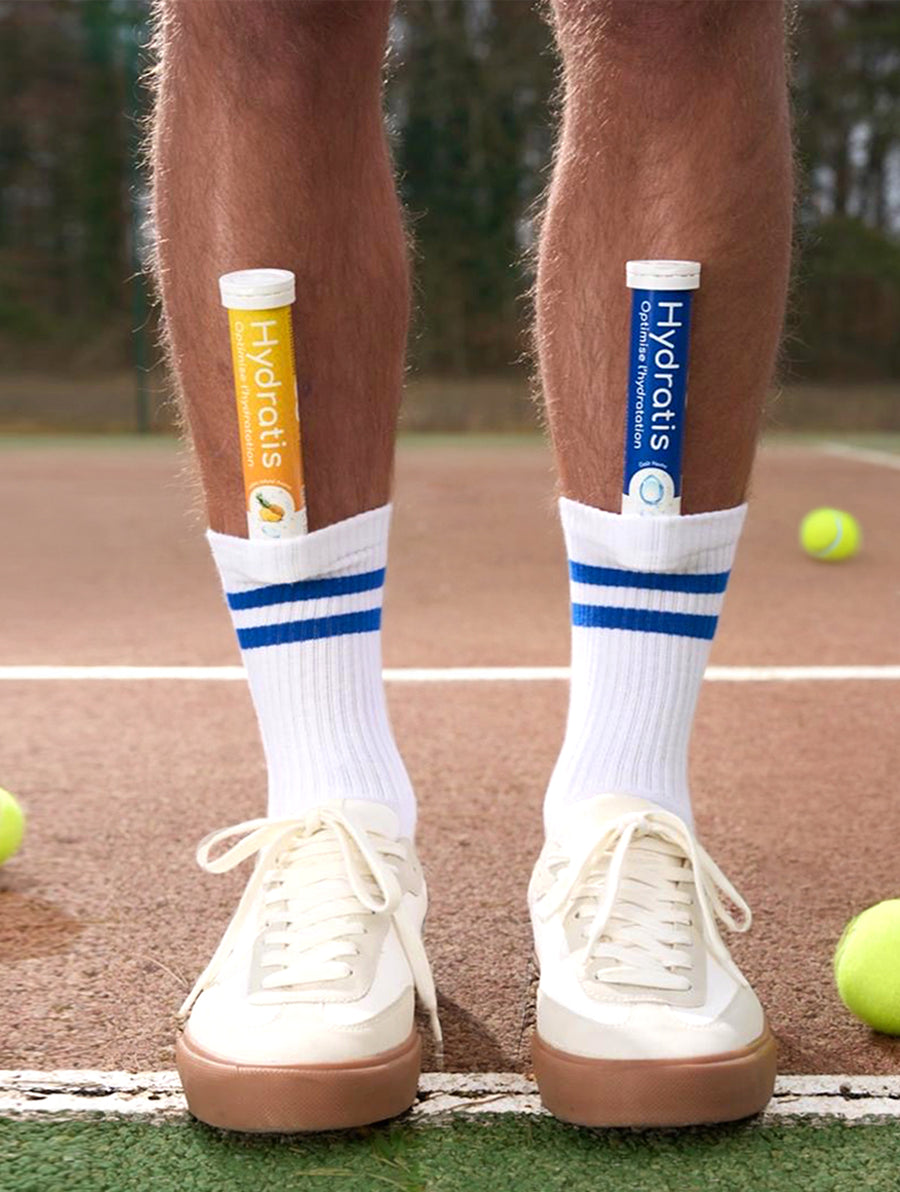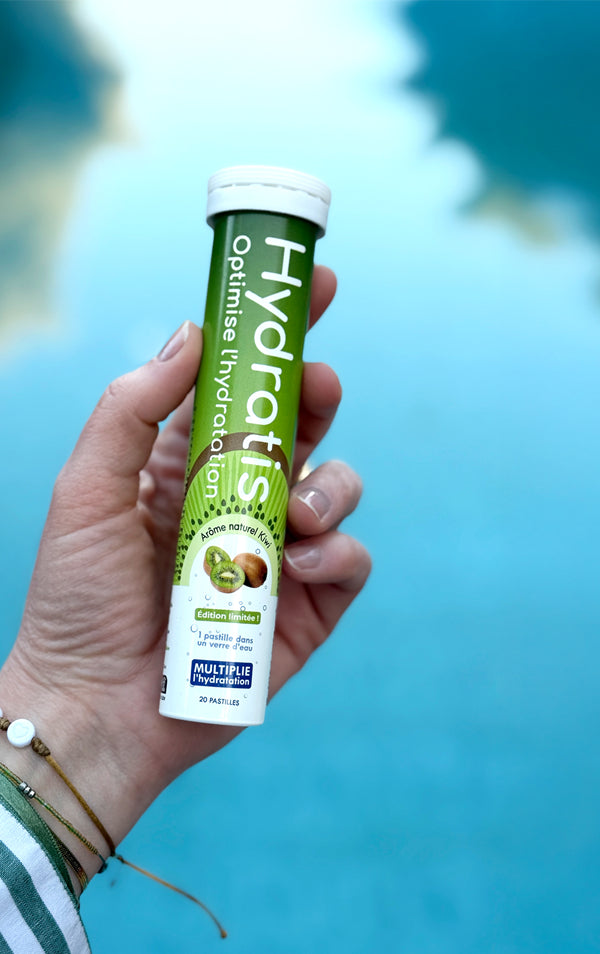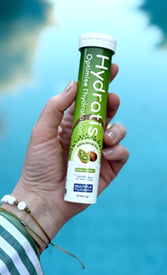Taking care of your muscle recovery is essential for progress in bodybuilding, improving athletic performance , and preventing muscle soreness . Without effective recovery, the results may not live up to the effort put in ! Poor recovery can also lead to joint injuries, chronic inflammation, and an overall slowdown in performance . In this article, we'll help you better understand muscle recovery: its role, its importance, and the best ways to optimize it for faster progress!
What is muscle recovery?
Muscle recovery is the process by which your body repairs and rebuilds muscle fibers damaged during physical exertion. This process involves protein synthesis, replenishment of glycogen stores, and cellular rehydration . Recovery not only allows you to return to your initial performance level but also improves muscle endurance and strengthens tissues. It relies on a precise balance between nutrition, sleep, stress management, and muscle recovery strategies.
Why is muscle recovery essential for progress?

Recovery helps to develop your muscle mass
During exercise, muscle fibers undergo micro-tears. It is during the recovery phase that your body activates protein synthesis to repair and strengthen these fibers, resulting in increased muscle volume and strength. Insufficient recovery will limit progress and increase the risk of injury .
Recovery helps reduce inflammation and muscle pain.
During intense exertion, the body sustains micro-tears that trigger a natural inflammatory response. Proper recovery limits this inflammation, promotes toxin elimination, and also reduces oxidative stress, thus allowing for faster relief of muscle pain and preventing stiffness.
Recovery helps maintain motivation
A well-hydrated, well-rested, and well-nourished body performs better. By limiting muscle fatigue, energy dips, and joint injuries, you'll maintain your motivation and continue your progress without interruption.
The stages of muscle recovery
During physical exertion, glycogen stores decrease, muscle fibers are damaged, and amino acid production is stimulated. This metabolic stress triggers essential muscle repair and adaptation mechanisms for progress.
Muscle recovery comprises several complementary phases:
- Replenishing energy reserves through glycogen replenishment
- Protein synthesis to repair and strengthen muscle fibers
- The elimination of metabolic waste, such as lactate
- Reducing inflammation
- Tissue regeneration
- Restoring water and electrolyte balance
How to improve muscle recovery?
Good nutrition

Sufficient intake of quality protein , complex carbohydrates, vitamins, and minerals is important for optimizing muscle repair. BCAAs, glutamine, and magnesium can support muscle regeneration. Incorporating antioxidant-rich foods, such as berries, will also help reduce oxidative stress.
Effective stretching and massage
Post-exercise stretching will help maintain muscle and joint flexibility . Sports massages, foam rolling, and self-massage will stimulate blood circulation, improve muscle oxygenation, and promote the elimination of toxins accumulated in the tissues.
Getting enough sleep and avoiding stress
Deep sleep is essential for muscle recovery . During the night, the body secretes growth hormone, which accelerates tissue repair. Sleeping at least 7 to 9 hours a night improves recovery and maintains hormonal balance . Effective stress management limits the production of cortisol, a catabolic hormone that can inhibit muscle growth.
How can you guarantee the quality of your recovery phase?
Take time to rest

Always schedule rest days between intense training sessions to allow muscle tissue to repair and adapt. Keep in mind that overtraining is one of the main obstacles to progress.
Take time to sleep
Sleep is a phase of active repair . Several scientific studies, such as the one conducted at Stanford University, demonstrate that increasing sleep time in athletes improves accuracy, speed, and endurance. So make sure you get quality, restorative sleep!
Help your body eliminate toxins
Hydration plays a vital role in recovery. Drink enough water and use fortified solutions. Containing electrolytes like Hydratis, it helps to compensate for mineral losses and facilitate the elimination of metabolic waste.
Compression and recovery
Wearing compression garments after exercise can promote venous return, improve blood circulation, reduce inflammation, and accelerate muscle fiber recovery as well.
The cold and the heat
Cold baths are effective in reducing inflammation and muscle stress after exercise. The application of heat can, in turn, promote muscle relaxation and support blood circulation, thus contributing to tissue repair.
Dietary supplements
Supplementation with BCAAs, glutamine, or magnesium can help reduce muscle fatigue, support protein synthesis, and restore energy reserves more quickly. This is especially beneficial after long or very intense workouts.
The impact of oxidative stress on muscle recovery
After physical exertion, an increased production of free radicals leads to oxidative stress, which can slow muscle repair. A diet rich in natural antioxidants (manganese, zinc, vitamins C and E, polyphenols) helps neutralize these free radicals and thus improve recovery.
What are the consequences if you do not ensure proper recovery?
Ignoring the recovery phase can lead to joint injuries, tendinitis, chronic inflammation, and persistent fatigue. Ultimately, this results in decreased motivation, stagnant performance, and reduced muscle mass.
How to achieve good muscle recovery?
Effective muscle recovery relies on a combination of factors: restorative sleep, proper nutrition, regular hydration, stress management, the use of passive recovery techniques (stretching, massage) , and occasional use of dietary supplements . By incorporating these strategies, you will optimize muscle repair, reduce pain, prevent injuries, and achieve your athletic goals in the long term.
Bibliography
Lobo DN (2004). Fluid, electrolytes and nutrition: physiological and clinical aspects. The Proceedings of the Nutrition Society, 63(3), 453–466. https://doi.org/10.1079/pns2004376
Peake, J.M., Neubauer, O., Walsh, N.P., & Simpson, RJ (2017). Recovery of the immune system after exercise. Journal of applied physiology (Bethesda, Md.: 1985), 122(5), 1077–1087. https://doi.org/10.1152/japplphysiol.00622.2016
Chennaoui, M., Vanneau, T., Trignol, A., Arnal, P., Gomez-Merino, D., Baudot, C., Perez, J., Pochettino, S., Eirale, C., & Chalabi, H. (2021). How does sleep help recovery from exercise-induced muscle injuries? Journal of science and medicine in sport, 24(10), 982–987. https://doi.org/10.1016/j.jsams.2021.05.007






